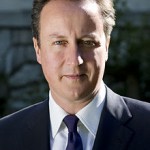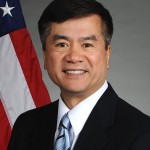By Danny Friedmann
China’s increasing economic power keeps on rumbling. While the US and UK seemed like identical twins in regard to foreign policy during the Bush-Blair era, recently the Anglo-American unity in regard a policy towards China seems to be diverging. David Cameron, the UK prime minister and leader of the Conservative Party, has jumped on the seemingly unstoppable train of China’s economic successes (according to Cameron: “Last year China became the world’s largest trading nation. Next year China is set to become the world’s largest importer of goods and later this century it will become the world’s biggest economy.”), while the US and also the other EU countries, seem to be more circumspect.
Cameron’s message to open up the EU for trade with China coincides with the UK’s biggest trade delegation ever to visit China (131 persons). The IP industries are well represented: executives from the automotive industry which is IP intensive (Jaguar Land Rover), Royal Dutch Shell (patents), GlaxoSmithKline (patents), TalkTalk (music copyright) and the football Premier League (copyright and broadcasting rights), TV producer Peter Bazalgette (formats/copyrights), etc., read more here.
See James Chapman’s article ‘China’s an opportunity, not a threat, gushes Cameron: PM uses interview to say nation’s rise is a ‘defining fact’ of our age – even if the West doesn’t like it’ for the Daily Mail, see here.
Chapman wrote: “Mr Cameron is also promising to speed up the process for patents so that businesses concerned about the economic impact of intellectual property infringement in China, estimated to cost from tens of millions to several billion pounds. In 2012, 1 in 4 UK businesses were put off doing business overseas due to concerns around intellectual property theft.”
Gary Locke, the US ambassador to China, articulated a similar concern perceived by US businesses that operate in China. According to Edmond Elococo: “There is still a long road ahead before right holders in China can feel confident that their IPR will be both fully protected under the law and effectively enforced,” Locke told the 2013 U.S. Ambassador’s Intellectual Property Rights Round-table. At the same time, he said China’s enforcement regimes are “clearly moving in the right direction.” Elococo’s article for Bloomberg News here, and he notes that Locke argued that China’s IP lacks transparency and consistency (which is a recurring theme at IP Dragon and in ‘Paper Tiger or Roaring Dragon, China’s TRIPS Implementations‘).
David Cameron, UK Prime Minister
The differences in emphasis might be summarised as follows: The UK sees the status of China as an economic superpower as a fait-accompli or at least a seront accomplies and even though UK businesses perceive that their IP is not adequately protected in China, the UK government does not want to pressure China to improve its IP regime and implicitly seems to encourage the UK businesses to find a way to deal with it. And regardless the effectiveness of China’s IP regime, the UK is advocating an EU free trade agreement with China. Chapman argued that other EU countries feared that this will result in cheap and fake products originating from China flooding the EU market.
The US government is stating more neutrally that China’s IP is transparent nor consistent and that US rights holders do not feel confident that their rights will be effectively protected and enforced, and it seems not to be afraid put pressure on China to further improve its IP system.
Locke’s remarks proved to be sensitive for Foreign Ministry spokesman Qin Gang: “We hope that the U.S. can be more objective and fair in understanding this. We hope that relevant countries can strengthen dialogue and not keep applying pressure and blame.”
In your opinion, what will be the most successful approach to improve IP enforcement in China: more trade or more political pressure? And is it fair that the UK government is not willing to exert pressure, and therefore probably landing lucrative trade deals with China, but if US pressure is successful it benefits from this as well?
Gary Locke (US Ambassador to China, since 2011) and John Locke (English philosopher of the Enlightenment and writer of Two Treatises of Government, which includes Locke’s theory on property, 1689) two advocates of the protection of property, which one can argue includes intellectual property rights.



